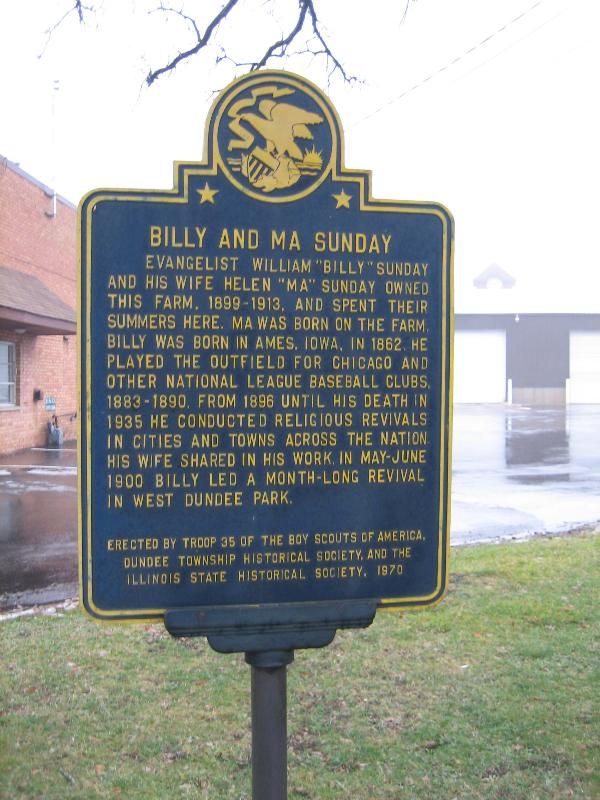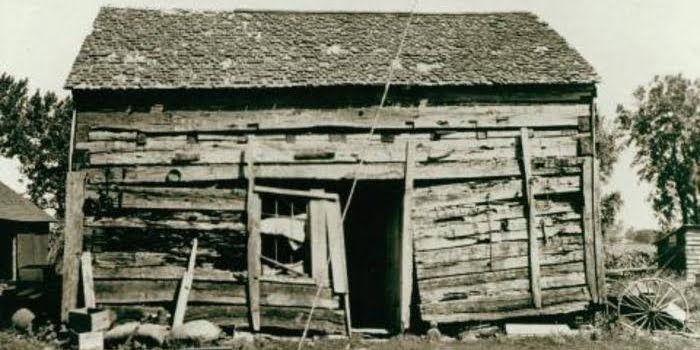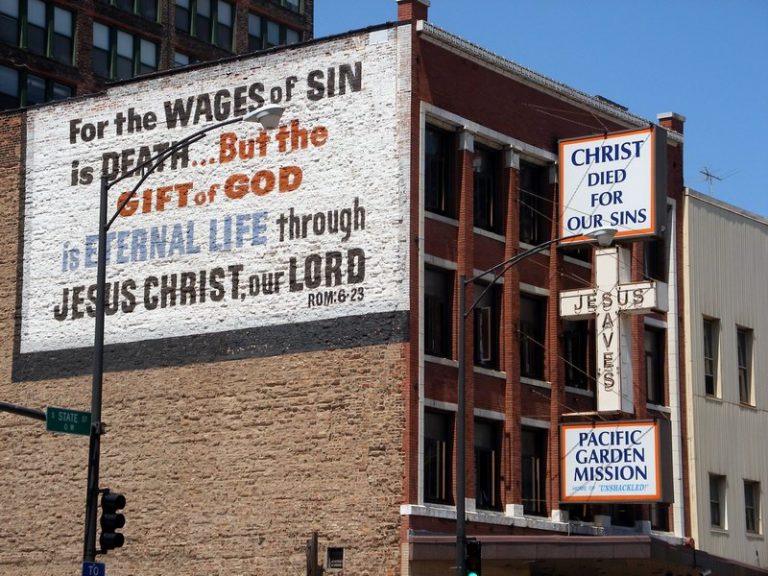Favorite
This stop isn’t exactly a Christian historic site, but an interesting look at history from the Christian era. George Herman “Babe” Ruth (1895-1948) was called the “Sultan of Swat” An inaugural member of the Baseball Hall of Fame, and holder of records that still stand today, he was awarded the Presidential Medal of Freedom posthumously by President Donald Trump. In Read more...
Favorite
Halfway between O’Hare Airport and Rockford Illinois is a historical marker about a famous evangelist. Billy Sunday had given up professional baseball for the Chicago White Stockings in 1890 and began holding evangelistic meetings across the nation. During the summers he would take a break from the road – he wanted a place that felt like his hometown of Ames, Read more...
Favorite
Billy Sunday home from 1862-1872. Road renamed Billy Sunday Lane Burial of Albert Sunday, older brother of Billy, and Mary Jane Corey, Billy’s mother Image Credit: Sep 20, 1916, Page 11 – Boston Post at Newspapers.com. www.newspapers.com/image/74642292/?match=1&terms=%22boyhood%20days%20again%3A%20billy%20sunday%22. 1851 – Squire Martin Cory (maternal grandfather of Billy Sunday) settlement started with a Land Patent on 160 acres 1862 – Read more...
Favorite
Internationally known for their live productions of ‘Unshackled’ – the longest running radio drama in American history, Pacific Garden Mission is also the oldest continuing operating rescue mission, approaching 150 years of continuous service. Started in 1877 by Colonel George Clarke and his wife, Sarah Dunn Clarke on Clark Street, the mission has been in a few different locations since Read more...



